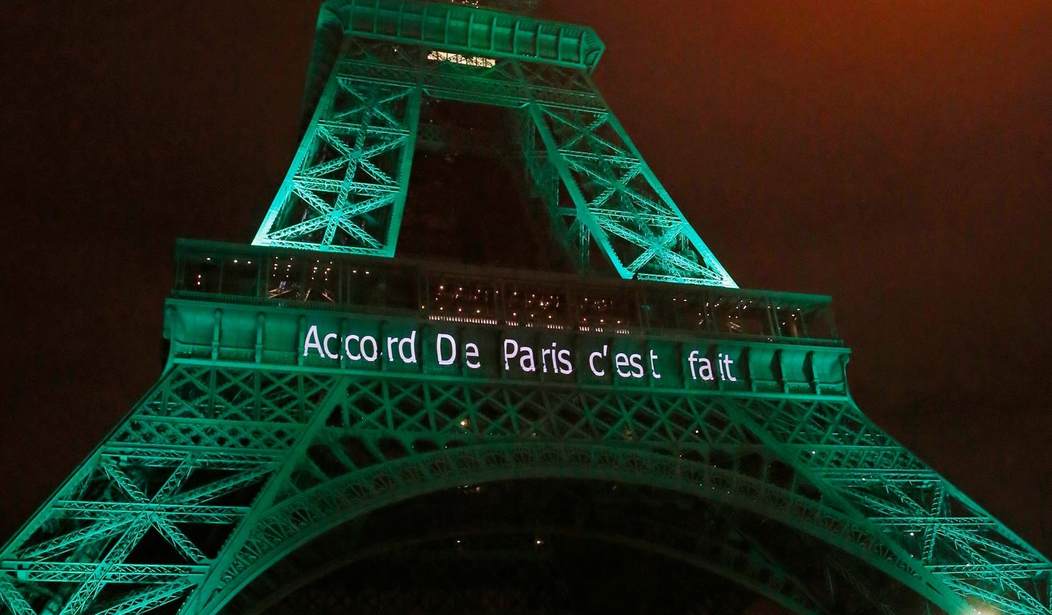The world is facing a stark choice. Should governments restrict energy use by dramatically raising the price of fossil fuels to fight purported human-caused climate change? Or should they permit the continued use of comparatively cheap, entirely reliable fossil fuels by rejecting carbon cap-and-trade schemes, carbon taxes, and mandates restricting the use of fossil fuels?
Put simply: People need to ask themselves whether they want to pay more for the energy they already get.
Advance reports of a new U.N. Intergovernmental Panel on Climate Change (IPCC) study indicate those who believe humans are causing allegedly dangerous climate change are in for some bad news, as The Hill recently reported: “[g]overnments across the globe are ‘nowhere near on track’ to meet their goal of preventing global warming of more than 1.5 degrees Celsius higher than the pre-industrial period.”
According to the IPCC report, only a massive, worldwide transformation of electric power, transportation, and agricultural systems can prevent the global temperature from rising the 2 degrees Celsius or less nations committed to as part of the Paris Climate Agreement.
Commenting on the report, Ola Elvestuen, Norway’s environment minister, said,“We are moving way too slowly. We have to do more of everything, faster. To reach the goals of the Paris agreement we need large structural changes.”
There is a big problem, though: Governments are having a hard time convincing the people in their nations the radical restrictions on fossil fuels many climate alarmists are calling for are worth the minimal climate change benefits that might flow from the living-standard sacrifices they will be forced to make. Worse still, IPCC’s own calculations show these radical policies would be insufficient to prevent the targeted temperature rise.
Recommended
Even the minimal actions taken or proposed by governments so far carry a steep price tag. For instance, in 2016 and 2018, the U.S. House of Representatives adopted resolutions rejecting a tax on carbon-dioxide emissions based on research showing a modest tax of $28 per ton would result in decreased economic activity, eliminating as many as 21 million job equivalents over the next four decades while potentially reducing workers’ wages by 8.5 percent. A separate study indicates a carbon tax of $37 per ton would incur a loss of more than $2.5 trillion in aggregate gross domestic product by 2030—more than $21,000 in income loss per family—and lead by 2030 to the destruction of more than 500,000 jobs in manufacturing and more than one million jobs overall.
Canada’s Financial Post reports Prime Minister Justin Trudeau’s $50-per-ton carbon tax would cost households in Nova Scotia $1,120 per year. In Alberta, the tax would cost $1,111 annually. Even in Manitoba and Quebec, the two provinces where energy prices are projected to increase the least as a result of the tax, households will still pay an additional $683 and $662, respectively, for their electric power each year.
There’s more bad news for Canadians: Many climate alarmists say to reduce carbon-dioxide emissions to the degree necessary to avert catastrophe, carbon prices must increase to $100 per ton or more. Under such a scenario, “households in Alberta will pony up $2,223, in Saskatchewan they’ll pay $2,065 and in Nova Scotia, $2,240. In fact, at $100 a ton, the average price for households in all provinces is well north of $1,000 per year,” says theFinancial Post.
In response to rising energy prices, the premiers of four of Canada’s provinces have decided to scrap provincial taxes, programs, and fees imposed to implement Trudeau’s carbon tax.
Canada isn’t alone, either. A report by IHS Markit says the average price per ton of carbon emissions in G20 nations that have established a carbon trading market to reduce emissions is just $16 per metric ton, but the price needed to meet the minimal targets of the Paris Climate Agreement should be closer to $80 per ton, according to those who believe such measures are necessary to fight climate change.
A recent article published by Vox cites research indicating even a $50-per-ton carbon tax in the United States would be too low to reduce carbon-dioxide emissions 80 percent below 2005 levels by 2050—a stated goal of the Obama administration.
The Rhodium Group estimates to reach “80 percent (or more appropriately, 100 percent) reductions, carbon prices would likely need to exceed $100/ton by mid-century.”
Politicians, faced with the punishment of losing support from voters unwilling to pay more for less-reliable energy, are proving increasingly unwilling to impose the high price on carbon they themselves state is necessary to avert climate catastrophe. As evidence, leaders in Australia, Brazil, and Canada are publicly eschewing their commitments to reduce carbon-dioxide emissions, although they remain unwilling to pull out of the Paris Climate Agreement as the United States has done.
Elsewhere, in China, Europe, and Japan, for instance, leaders publicly proclaim their fealty to the Paris agreement while missing mid-term emissions-reduction goals, quietly approving new coal and natural gas power plants, and selling more fossil-fuel-powered vehicles.
I have good news. Since the best evidence suggests humans aren’t causing a climate apocalypse, Paris’s failure is nothing to be concerned about. In fact, its failure means it’s more likely there will be abundant energy for all.

























Join the conversation as a VIP Member